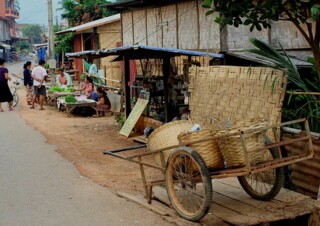Burma's Neighbour
Joshua Kurlantzick · Laos
Laos is run by a regime every bit as repressive as the Burmese junta, but it somehow gets a free pass from outsiders. At least Burma has political parties – Laos has none apart from the ruling Communists. On the few occasions when Lao activists have tried to hold rallies, they have been quickly arrested and disappeared.
This week, Thailand began forcibly repatriating 4000 ethnic Hmong who had fled Laos during and immediately after the Vietnam War. The Hmong are likely to face harassment or arrest on their return, both because of their role during the Vietnam War – many of them fought alongside US forces against the Vietnamese and Lao Communists – and because of longstanding racism. The Thai government admits that it fears for the safety of some of the Hmong it is deporting.
The Lao opposition, such as it is, has no high-profile spokesperson like Aung San Suu Kyi, and the faceless Lao government often seems more inept than frightening, although it employs a thorough security service. The US condemned Thailand’s actions, but don’t expect it to put any real pressure on the Thais – even though it has far more influence with Thailand, one of its allies, than with the Burmese junta.
Unlike Burma, which is off-limits to ‘ethical’ travellers, Laos attracts crowds of European backpackers, who go to places like Vang Vieng, a riverside town, to eat banana pancakes and smoke opium. Unlike Burma, Laos gets no high-profile hearings in Congress, policy reviews or presidential statements. Without any external pressure, without a credible opposition party, with a population largely isolated from the outside world and with no obvious splits in the ruling regime, Laos could wind up as the world’s last Communist country, outlasting Cuba, Vietnam, North Korea and even China.
